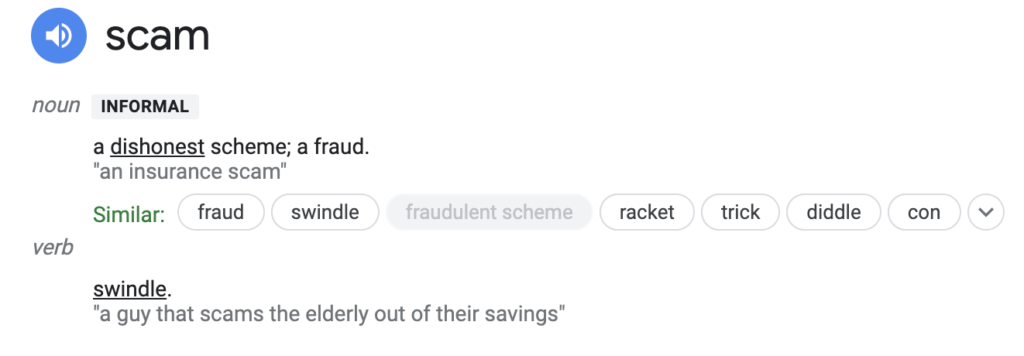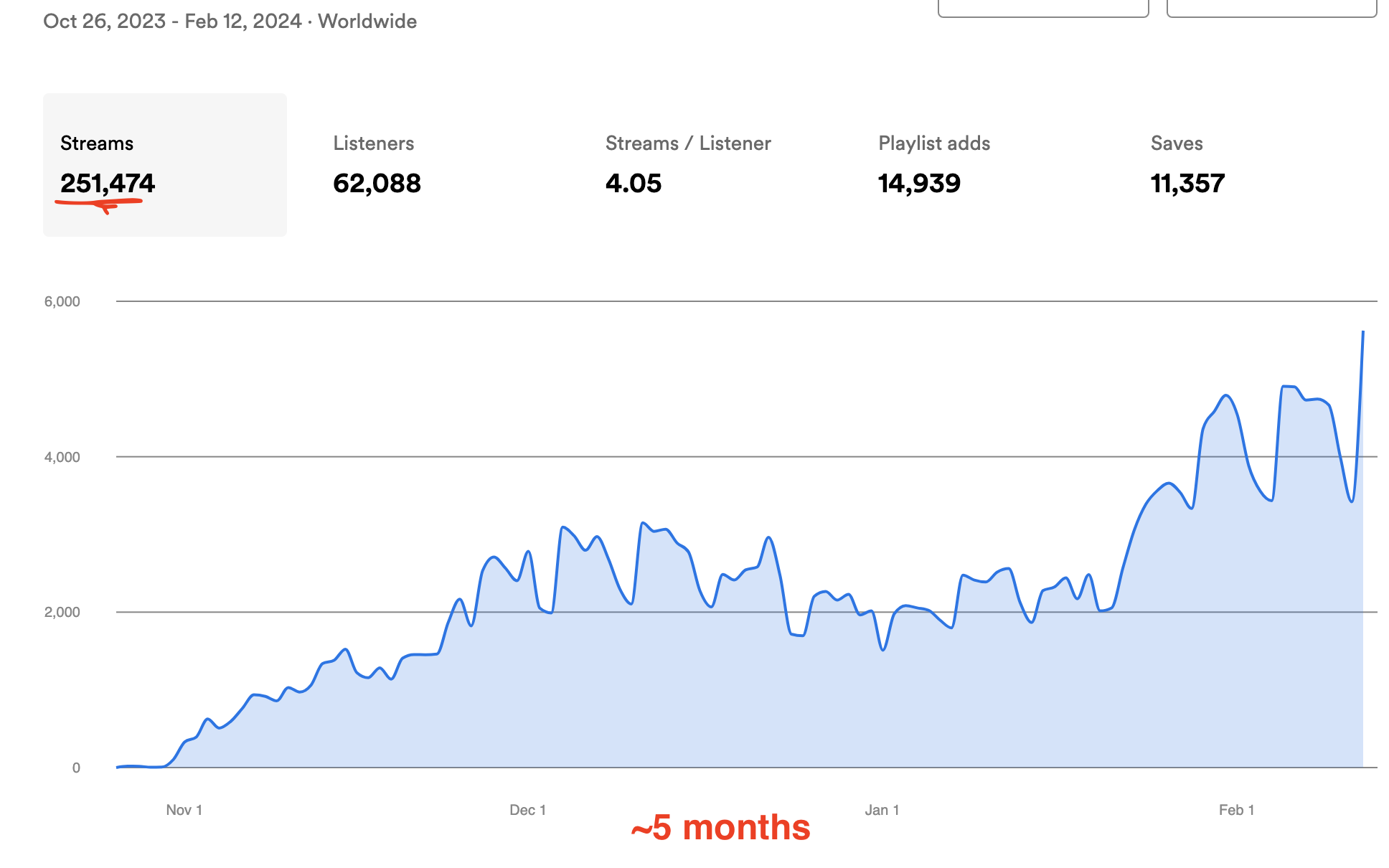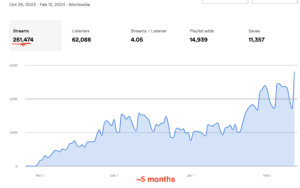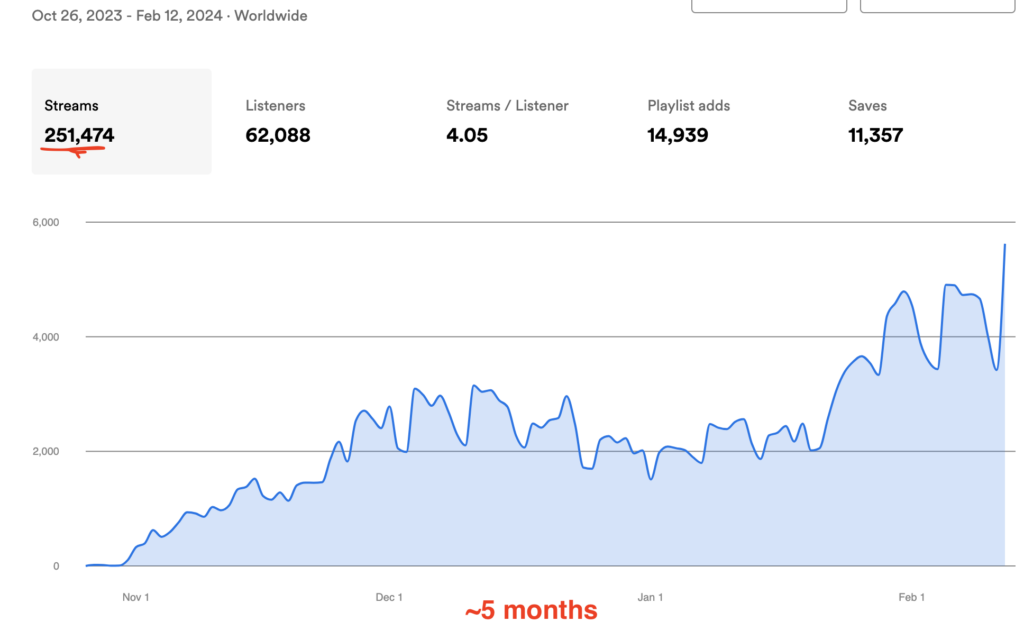I probably shouldn’t write this.
The topic’s not all that actionable, for one thing, and for another, my viewpoint is probably unpopular.
Writing it down puts me at high risk of coming off as “preachy.” And because of my position, if you’re a cynical person, you might even suspect that I’m being self-servingly disingenuous.
But this is something that’s been stuck in my head for a while – and hey, this is my site.
So here it is:
I’m tired of artists calling things “scams.”
Whether you’ve called something a scam or not, you’ve at least seen people doing this, right?
Like, Google any music marketing tactic, then tack on the word “reddit” and scroll through the threads, and you’ll inevitably come across people who say, with the bitter conviction that comes from hard-earned, bad experience:
“Don’t do it. Such-and-such tactic is just a scam.“
Google any music marketing company and this phenomenon increases tenfold.
Is this or that record label a scam? The internet says yes.
Such-and-such PR agency? Of course.
SubmitHub? You’re naive for even asking.
Playlist Push? Stop wasting your time and just pay someone to take your money.
Now, if you’ve thrown the word scam around a lot yourself – shoot, I get it.
It’s understandable, and there are at least two really good reasons for it.
1) There really are scams (and scammers) out there.
I get emails every other week from people who claim that a few thousand bucks will save their dying aunt, or ensure their pet dolphin can afford neurosurgery, or get my face on the cover of Better Homes and Gardens.
Clearly, people lie.
2) Most things don’t work.
I mean this in terms of music marketing tactics, specifically: Most ad campaigns burn money, most PR campaigns don’t make people famous, and most social media campaigns don’t go viral. But you can apply it to life in general, too.
When we pay for something (with time or money), we do so hoping for the ideal outcome. Almost every time, the ideal outcome doesn’t happen. Things come up short.
That’s frustrating. The more time or money you put in, and the greater the gap between your expectation and reality, the more frustrating it is.
So it makes sense that most of us feel perpetually ripped off.
“Well great,” you’re thinking. “Most things don’t work and people lie. So why are you complaining that artists call things scams? Can you get back to writing something that at least pretends to be useful or funny?”
You bring up two great questions. I’ll tackle the first one first.
Here’s why I don’t like it when artists call things scams:
First, most things just are not scams.
The dictionary definition of a “scam” is “a dishonest scheme”…

And most products and services are not marketed or delivered with intentional dishonesty.
Sure, there are plenty of exceptions. I can think of a few playlisting companies that claim to provide organic streams while knowingly boosting numbers with bots.
But I’ve tried dozens of services from dozens of different music marketing agencies over the past five years – and the vast majority of companies are simply trying their best to deliver on what they’ve promised.
Yeah, sometimes the results aren’t great (as with my influencer campaign last week). Sometimes there are even negative outcomes. But that doesn’t mean the company was being intentionally dishonest.
More likely, it just means things didn’t work to expectation – which, unfortunately, is kind of par for the course in this life.
Second, most people I know in this industry are trying really hard to do good work.
If I’m being honest, this is the biggest reason I’m writing about this; I feel kind of defensive for the people I know, and probably, by extension, for myself.
I had a call with a friend last week who shared that he had a client roast his company on Trust Pilot after an influencer campaign didn’t perform to the artist’s expectations.
My friend had marketed the campaign honestly and his team had worked hard on it. But the artist had expected bigger things, and when results fell short, they felt ripped off – so they blasted the company online.
Again, I get it. It’s frustrating when things don’t work.
But here’s the truth: Most music marketing agencies were not set up to take advantage of unsuspecting artists. Most of them were founded by people who genuinely care about music.
Most people – even most marketers – are just trying their best and coming up a little bit short.
Third, I think our tendency to call things scams is symptomatic of an underlying cultural issue:
We’re a grace-impoverished people.
When things go wrong, we find it much easier to point fingers than to forgive, and we find it much easier to hate than to hope.
I think it’s a defense mechanism: If other people are to blame, then we, at least, are all right. If my music isn’t blowing up, it feels safer to think that the music industry is a scam rather than to worry that my music isn’t very good.
A little while ago, I read something by some author I can’t remember that illustrated this kind of idea. In the piece, they laughingly explained one of their mother’s go-to sayings: “That’s how they get you.”
Software updates slowing down your phone? “That’s how they get you.”
Screens asking for tips at restaurants? “That’s how they get you.”
The Salvation Army person ringing the bell outside Walmart every Christmas season? “That’s how they get you.”
It was kind of a funny piece, but the author concluded it on a sober note (which, because I can’t recall it exactly, I will paraphrase):
“The problem with continually thinking they are out to get you is that this suspicion slowly erodes your ability to relate to others and corrupts your own heart. If you repeat over and over to yourself that you are at odds with everyone else – well, eventually, you are.”
That’s how I feel about our tendency to look for dishonesty in people, to label more and more things scams: We aren’t always wrong, but we shouldn’t want to be right, either.
Final thoughts from my self-righteous soapbox
Look, please know this: I don’t mean to belittle the bad marketing experiences you’ve had, or to suggest that every person in this world always has your best interests at heart. Bad results are frustrating (sometimes deeply hurtful) and other people can be painfully selfish. To suggest otherwise would be mean and dumb.
I also don’t mean to say you shouldn’t educate other artists when you’ve found that something doesn’t work. If a service didn’t get results or if it actively hurt your career, that’s helpful information for other people to know.
Point it out. Share it.
But don’t take satisfaction in it.
Don’t want other people to be bad so that you can be proven right. Don’t poison yourself with the persistent belief that other people are out to get you. That way of living will eat your heart.
I think the best, most fulfilling way to live life is by loving others, and love hopes all things. Love wants what’s good, even for “scammers.”
All right, I’ll step off the soapbox now.
Thanks, as always, for reading. Here’s hoping you find some marketing service that works, and that as you search for it, you don’t get ripped off.
And here’s hoping you can find grace, even if you do.









